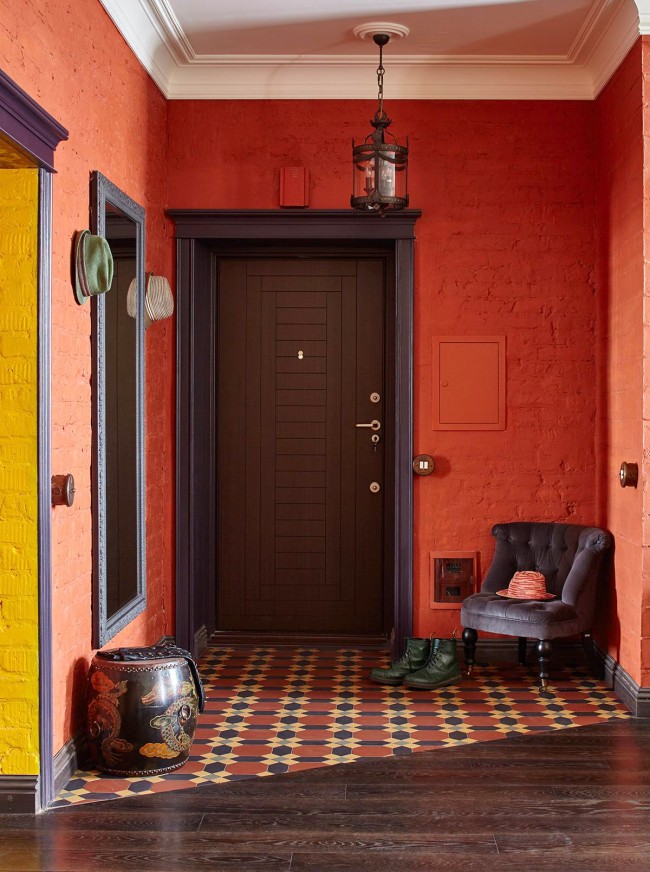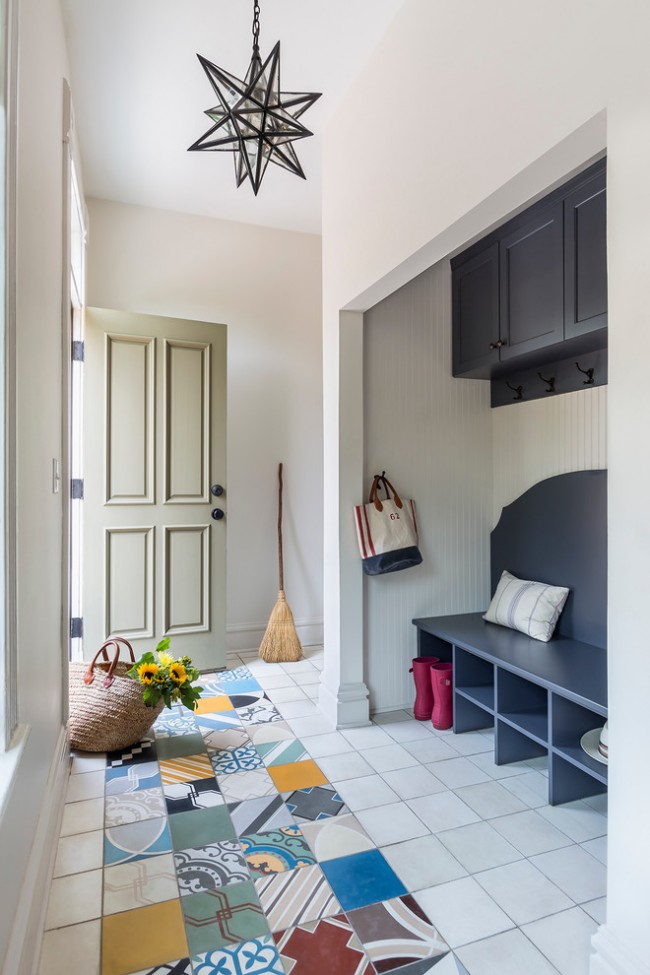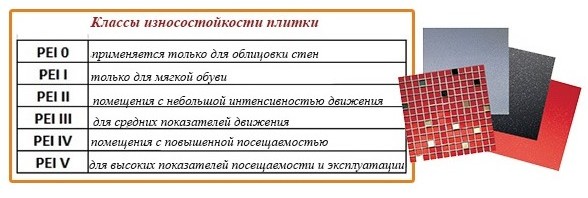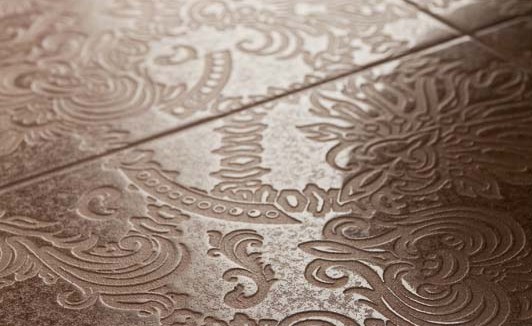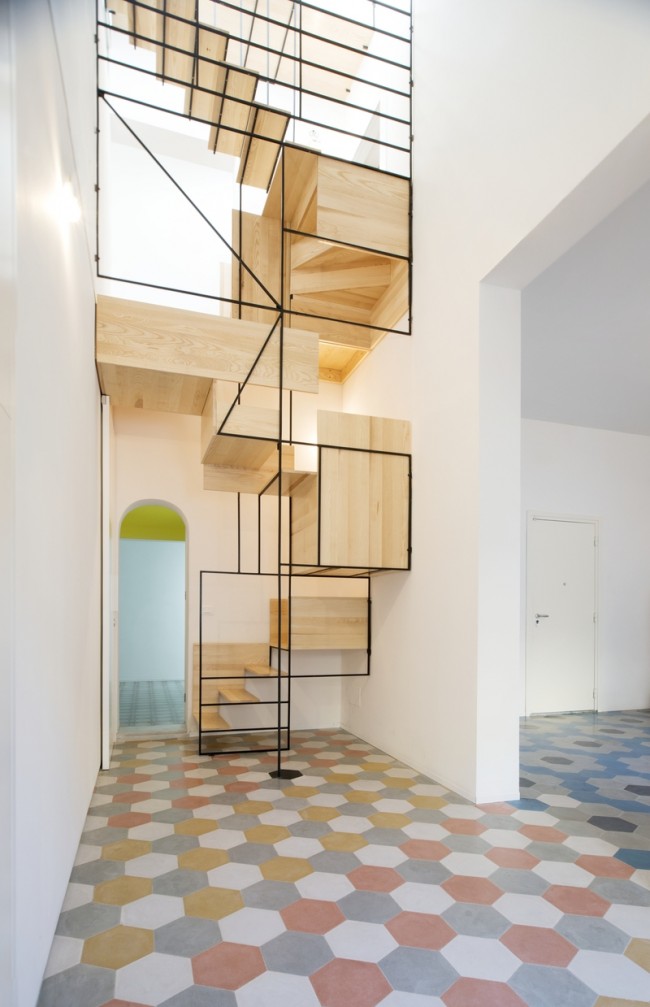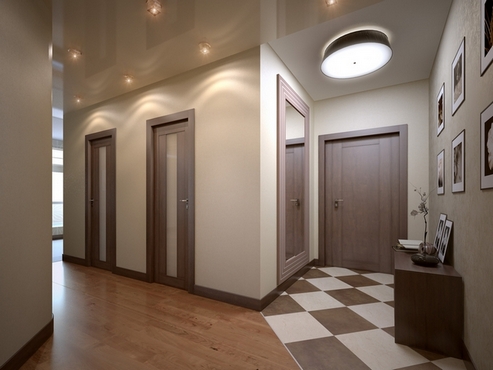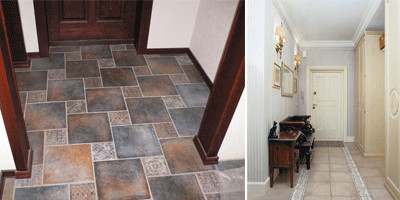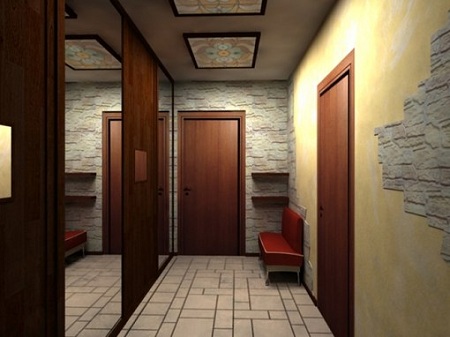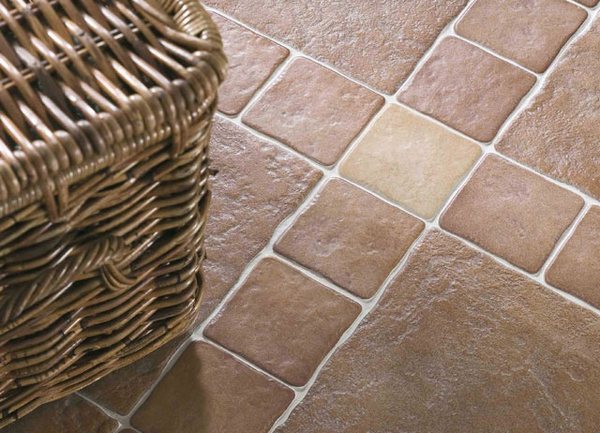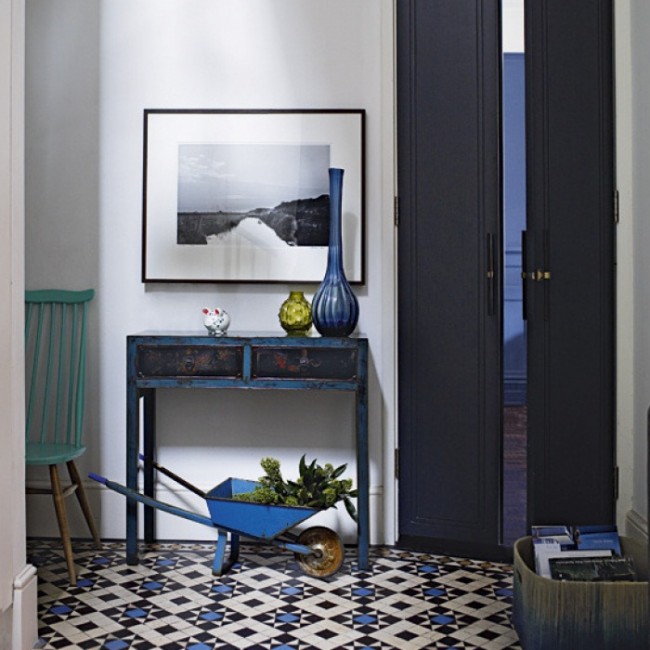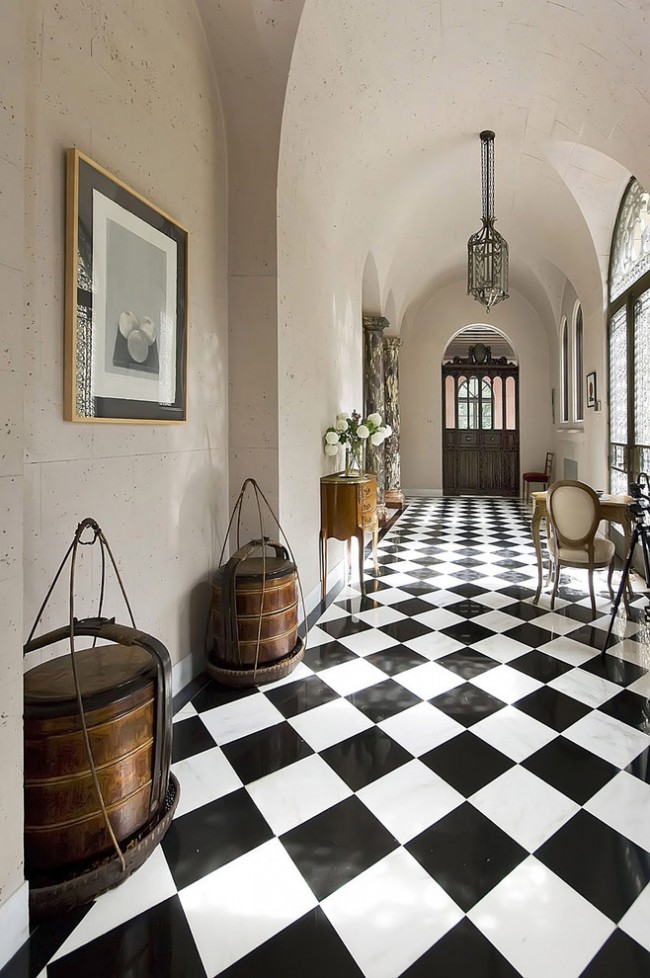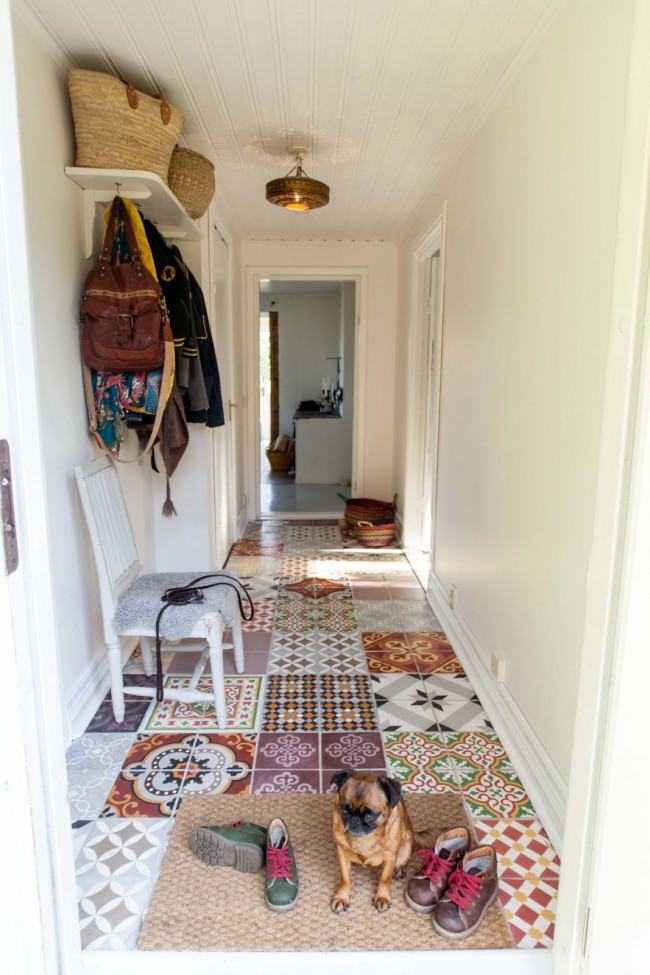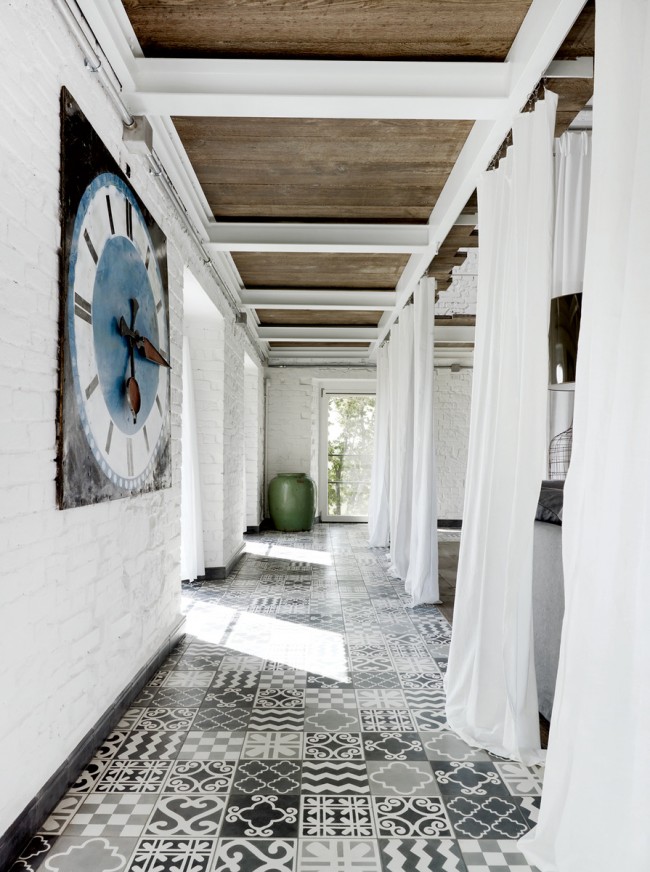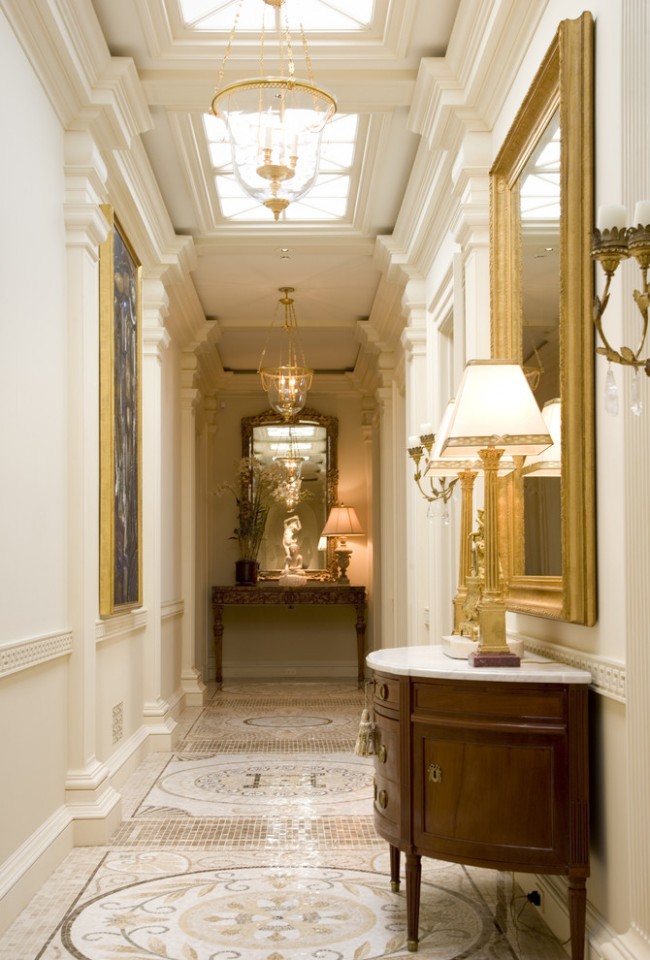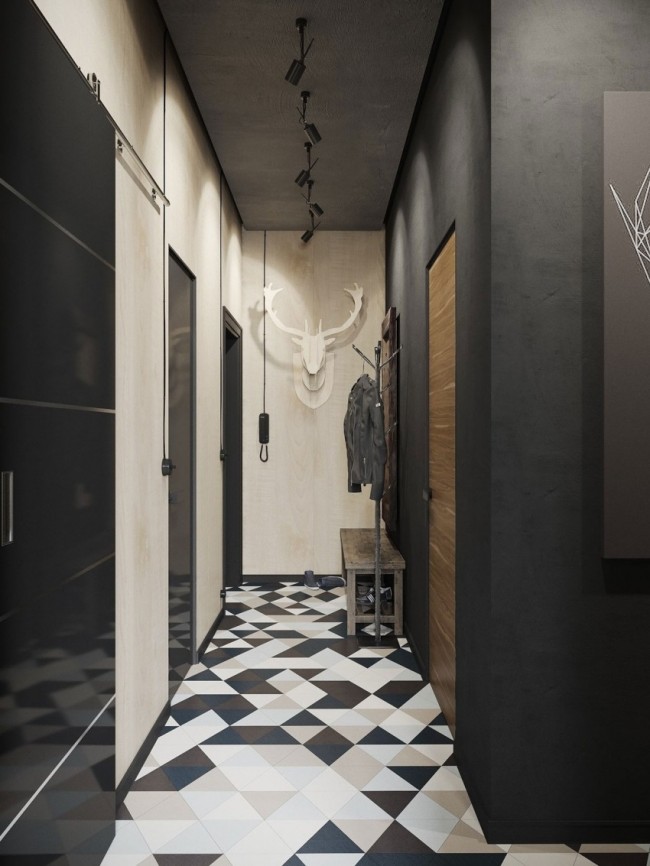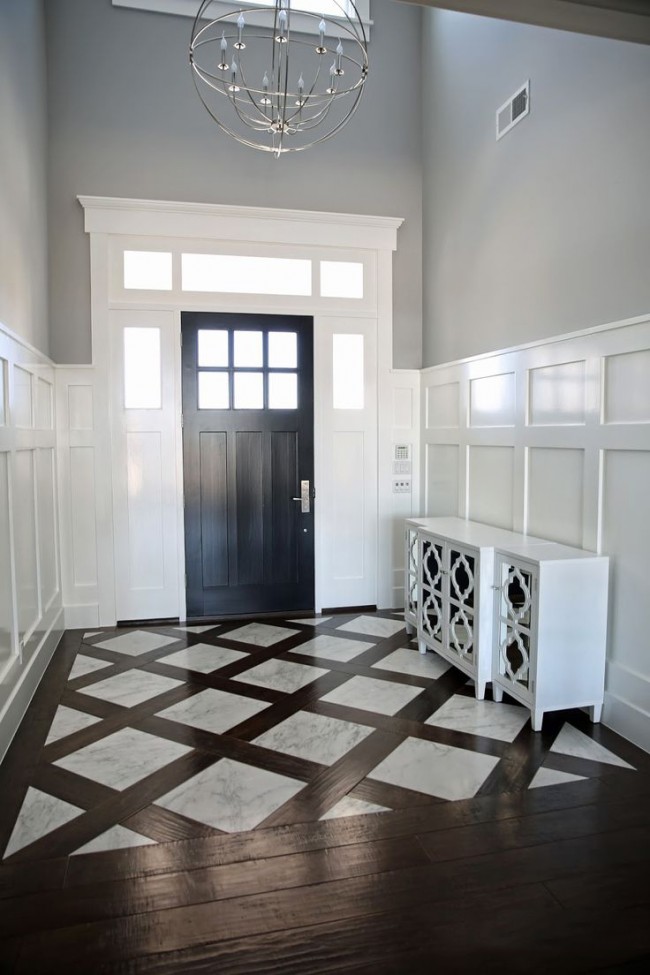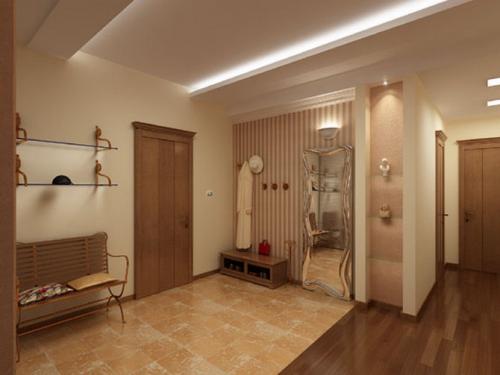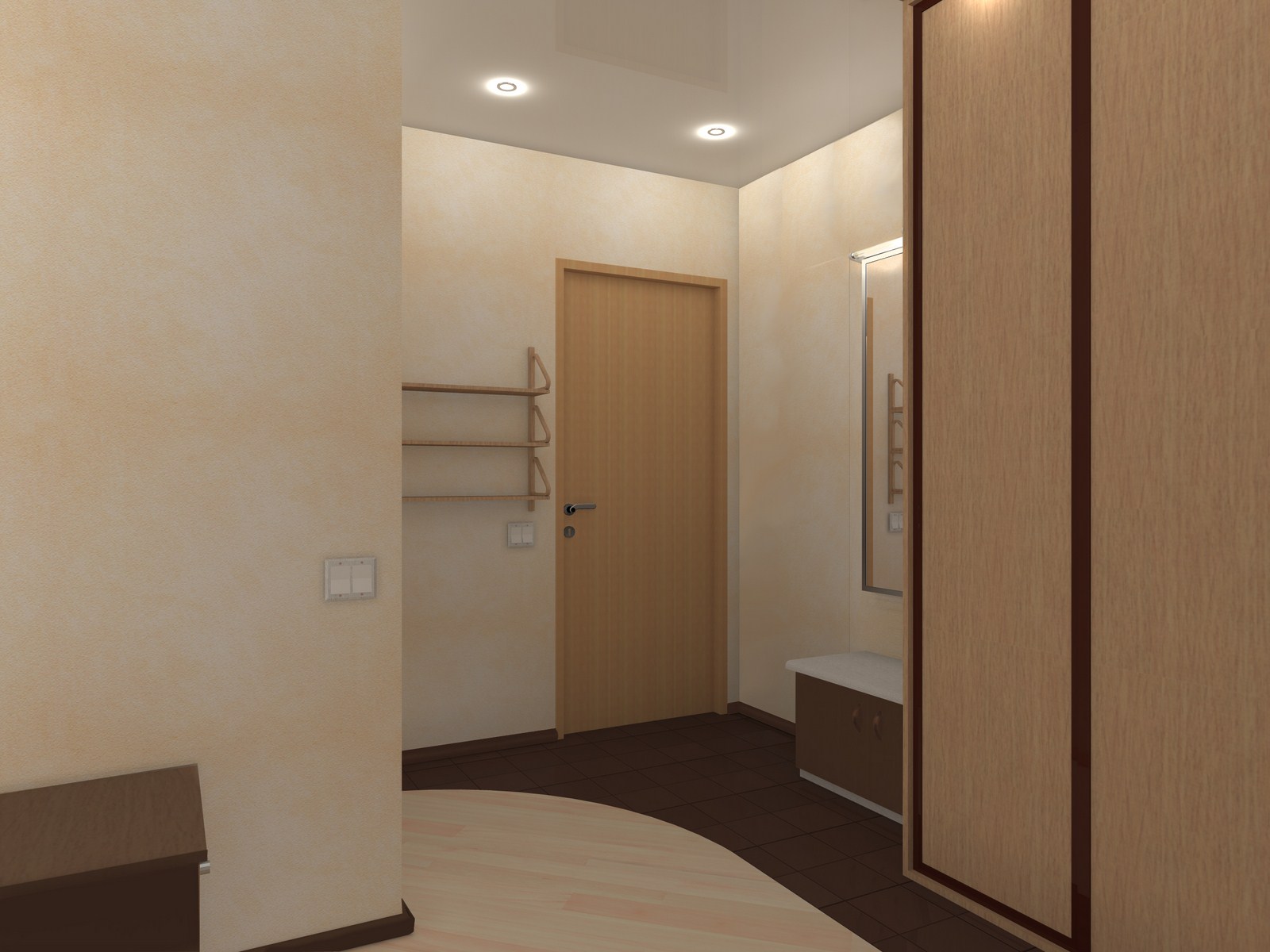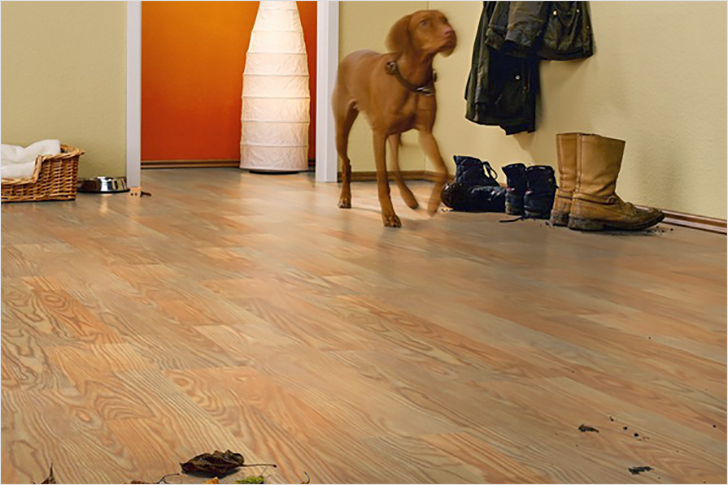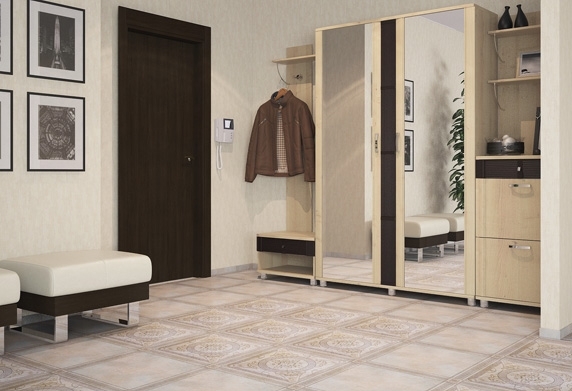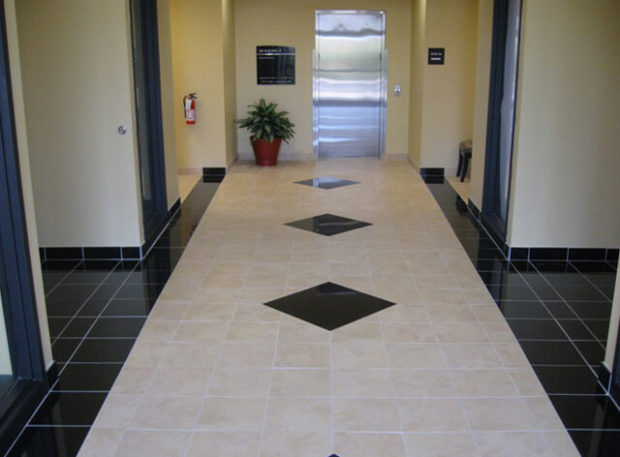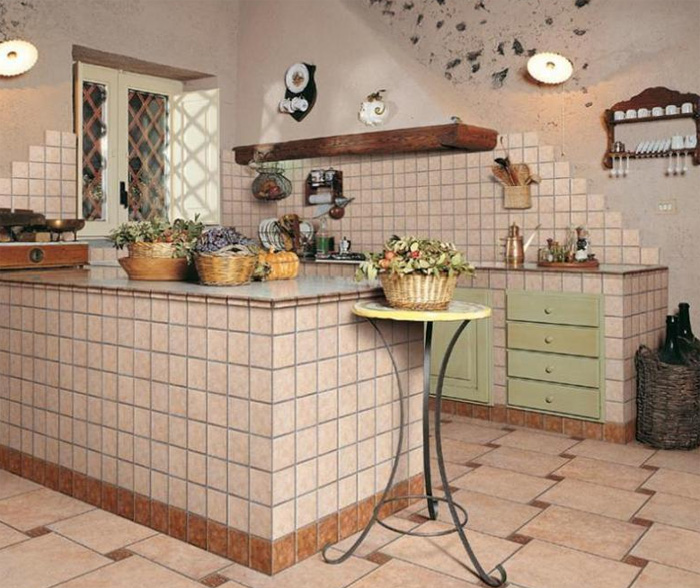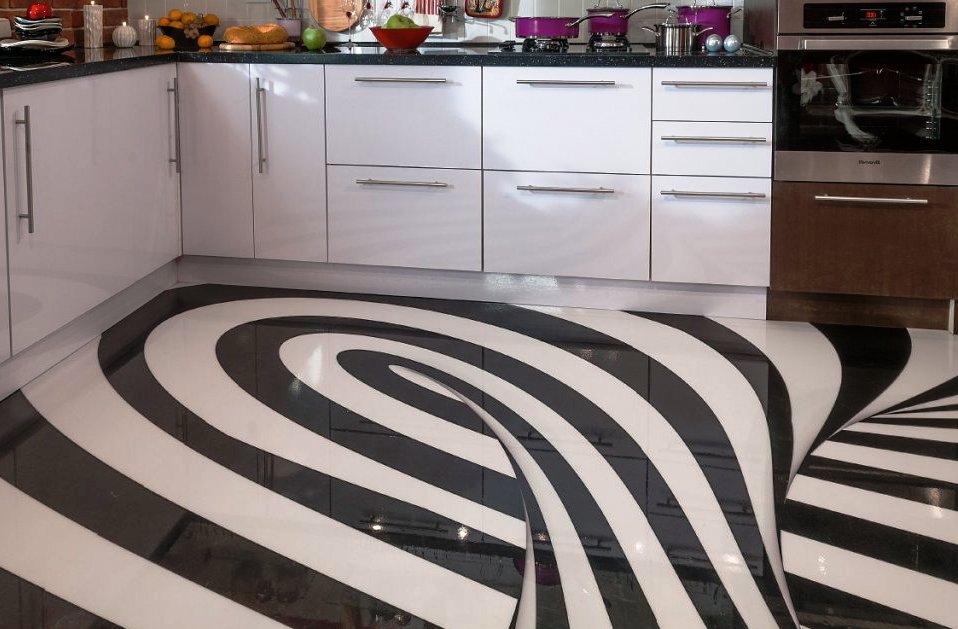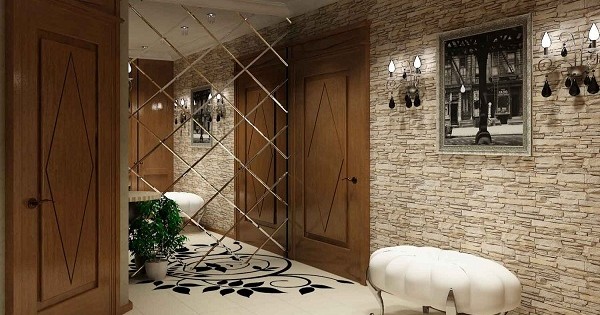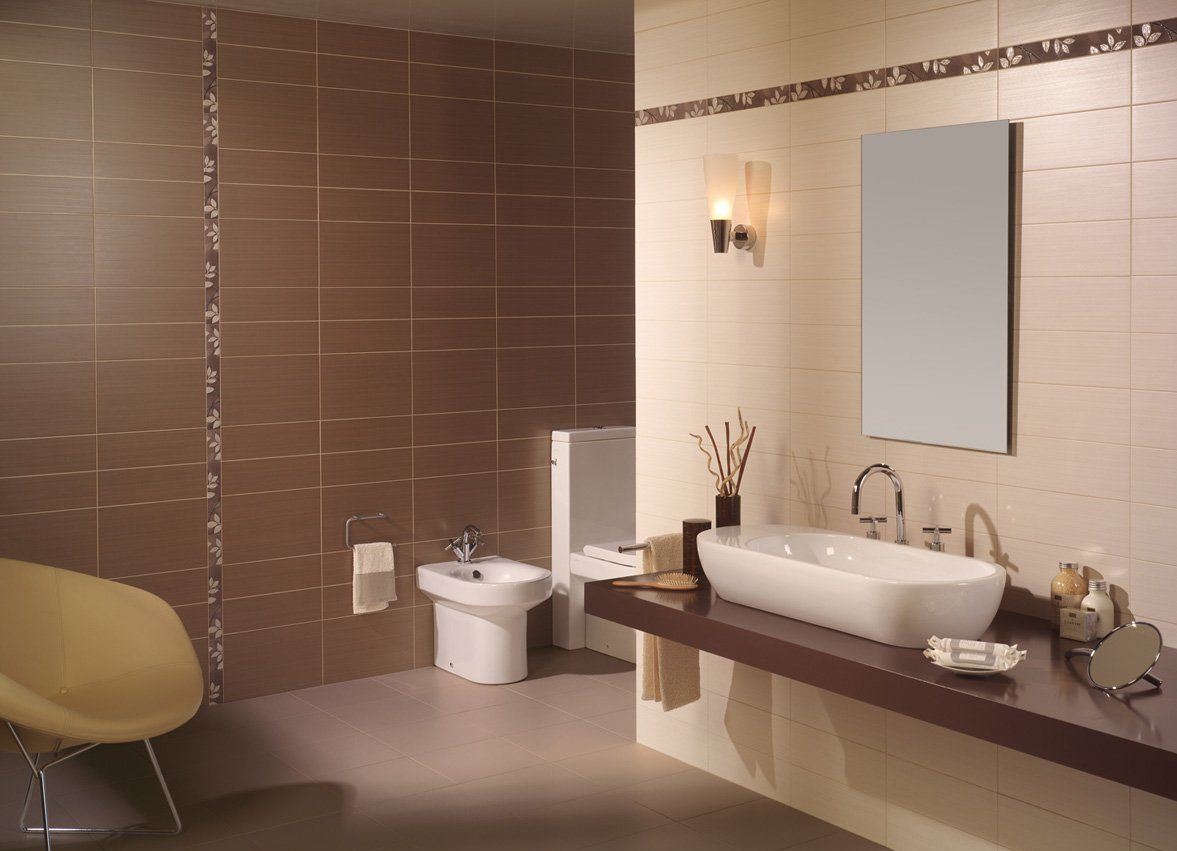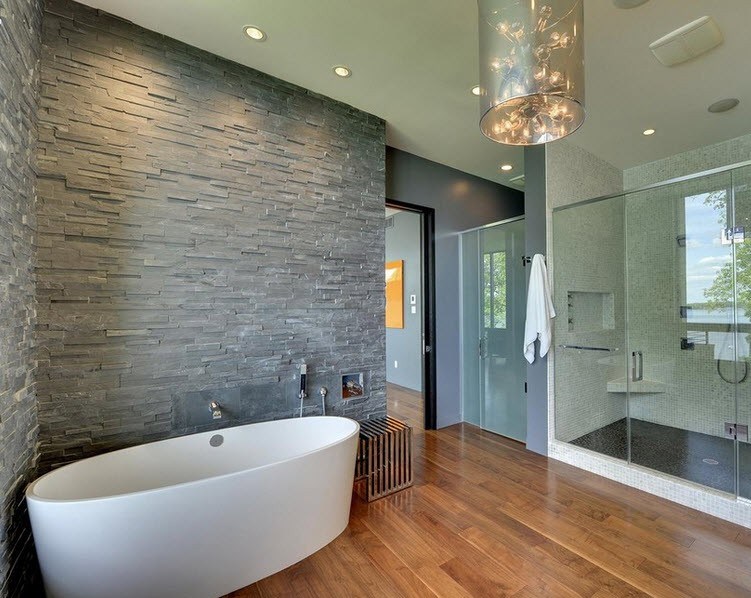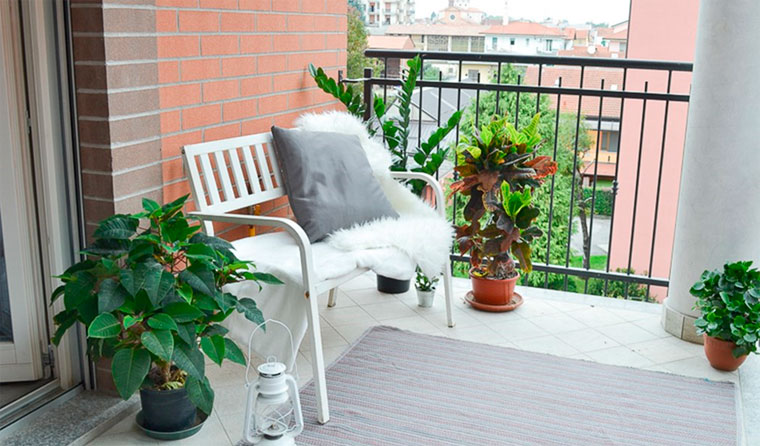What tiles to choose for finishing the floor in the hallway
Floor in the hallway daily suffers from dirt, moisture, sand brought from the street, and sharp heels. So that the coating retains a neat appearance for a long time, it is not afraid of moisture, mechanical stress and detergents, to his choice fit very carefully. Despite the abundance of options, the most popular tile, which in combination of properties is perfect flooring in the hallway, but not every tile will fit well. We will study the issue up and down and determine what tile to choose for finishing the floor in the hallway, what operational and decorative qualities it should have.
On the pros and cons
The main properties of the tile due to its wide distribution are familiar to many of us. This is an ideal material for the hallway, as it has the following advantages:
- durability. It is worth one time to buy and installation of cover, and it will serve you for several decades, subject to normal care;
- ease of care. Keeping the tiles clean is easy, you can use a lot of detergents, and dirt can even be wiped off with brushes;
- moisture resistance;
- wear resistance. Tile heels, sand, abrasive cleaners;
- hygiene;
- wide choose colors, patterns, formats, so there will be no difficulties with the design of the hallway in a certain color or style.
About cons also better to know in advance.
- The first is cold stuff, so barefoot in winter is not particularly suitable, but with the help of ordinary slippers this problem can be solved.
- Secondly, the tile is characteristic fragility: If you drop something heavy, then the probability is high that the material will be damaged.
If the hallway has an impressive size, then the tile floor can add undue severity and resemble the lobby of a government office. There are several ways out of the situation: use a combination of tiles with other finishing materials or use warm, cozy colors.
What should be the performance?
Given the constant effects on the tile in hallway, it is necessary to select a material with high performance. Evaluation is best done by the following parameters:
- wear resistance;
- resistance to chemical attack;
- coefficient of friction;
- water tightness;
- hardness.
Resistance to wear and chemicals
According to international standards, floor tiles are divided into five classes in terms of wear resistance. Since the material in the hallway is exposed to sand, shoes, abrasive detergents, it is better to choose a tile related to class from PEI-III to PEI-V. Find such material is not difficult.
Tools for the care of tiles often have a fairly aggressive composition, so the indicator of resistance to the effects of chemicals becomes important when choosing. In order not to be limited in the range of effective products and not be afraid to damage the tiles, it is better to choose a material with an indicator of stability not less B, and class A or AA tiles will have the highest performance.
Coefficient of friction
When it rains outside, moisture is allowed to enter the tiles in the hallway, which inevitably increases the chance of slipping. A similar risk persists during wet cleaning. To reduce the risk of injury, pay attention to the tiles with coefficient of friction of at least 0.75.
The best choice for the hallway - tiles with a matte finish or anti-slip surface. It is better if the material has a relief, but the glossy surface is a taboo for hallways: it is slippery, and in places of increased stress it dims. When choosing a rough tile, do not overdo it, otherwise the dirt can accumulate in the grooves: it is difficult to remove it, and the appearance will greatly deteriorate. The relief should be shallow, otherwise it is better to choose dark shades, at least for the area near the front door.
Water resistant and hardness
Of course, the tile itself has a low level of moisture absorption, as it burns at high temperatures and is characterized by low porosity. Probably, it is not worth explaining that the waterproofness in the case of the hallway should be at the highest level. For private houses, this figure is 3%, for apartments in multi-storey buildings - 6%.
According to the level of hardness, a tile with indicators is suitable for the hallway 6-7 points on the Mohs scale. Frost resistance in most cases can be neglected, because if the door is insulated according to all the rules, even near the threshold the tile will not freeze.
As for tile size, then it needs to be selected in accordance with the dimensions of the hallway itself. A universal option is a square tile with sides of 30 cm. Do not forget about mosaic existence and tiles of non-standard shapes, for example, hexagonal. It is also worth keeping in mind that the seams are most susceptible to moisture, so if possible, their number should be minimized, but do not get carried away: tiles with sides of 60 cm or more are not appropriate in a small standard hallway.
Ceramic tiles, porcelain tiles or "golden" tiles?
When it comes to tiles, what is usually meant is ceramic tile, since it is the most common in the modern market. It is made from fired clay, and as a result, a material that is excellent in decorative and operational qualities is obtained. Among the shortcomings, as already mentioned, fragility and a cold surface. There are some other materials that have resulted from the improvement of ordinary ceramic tiles.
Quartz Vinyl Tile Resistant to shock, and the secret lies in the production method. For the manufacture of quartz sand, plasticizers, pigments, stabilizers and vinyl. Sand provides naturalness and durability of a covering, and vinyl - flexibility, resistance to blows and wear. Among the colors, mostly natural shades.
Porcelain Tiles - this is something between tiles and stone, and the material combines their advantages, being devoid of many shortcomings. It is made of clay, crushed granite, feldspar or quartz under high temperature and pressure. The material is painted in bulk, and this is an additional plus. The only negative is the high price.
Golden Tile - an innovation that is rapidly conquering the domestic market. The name speaks not of metallic luster, but of its delightful performance. Material is made only in South Korea, and it is a multilayer structure: compacted PVC, stone granules mixed with resin, fiberglass, a film with a pattern and two protective transparent layers. Therefore, such a tile can imitate any material.
Design
Choosing the color and pattern of the tile, each is based on their own tastes and the selected color scheme of the hallway. When planning repairs and thinking about the design of the room, you should think in advance what kind of tile should be.Designers recommend listening to some tips that have already become axioms.
Light tile fits for small hallssince dark shades visually limit and reduce space. However, it is better to immediately discard snow-white and too light shades - they are too easily soiled. Peach, apricot, blue, pale blue, light green, for example, can be safely used. It should be taken into account that cold shades work better for expanding the space, but warm ones give home comfort. There is a tile that perfectly imitates other materials, such as stone or even wood. The latter option is ideal for creating coziness in the hallway, typical of a wooden floor.
For spacious hallways, you can use tiles of any color, but you should not go into too dark shades. Remember that scratches will be clearly visible on black, dark brown, navy blue tiles and the like. Great move for small halls – diagonal tile laying. You can use contrasting shades and lay them out in a checkerboard pattern. The color of the grout depends on the color of the tile, but it is better to choose the darkest option - it will be less easily soiled.
Patterns also selected according to the design of the hallway, wall colors and the ceiling. A win-win option is monophonic tile, but the patterned coating in most cases makes the interior more expensive. The selection of drawings on the tile, without exaggeration, is huge. If the hallway is decorated in a classic style, then you can choose marble tiles; for the interior in modern style, you can use two-color tiles.
Choosing tiles of the same size, style, but with different colors or with different ornaments is a great option for decorating the entrance hall. The floor will seem to be sewn from different shreds of fabric. When laying you can adhere to some order or, conversely, use different patterns and colors randomly.
Can use tile different sizes and shapes. For example, lay out the central part of the hallway with a beautiful panel, for which mosaic. In general, there are a lot of options for various tile laying: you can combine the materials as you like, and if you add the existence of hexagonal, triangular and other shapes, then there are an unlimited number of ways to decorate the hallway.
Combining tiles with other materials
The tile goes well with many other finishing materialsincluding parquet and laminate. Thanks to this combination, you can perfectly zoning the hallway space, highlighting the area where shoes are removed and the area where guests are welcomed. Moreover, this is a good solution for those who consider the tile not to be a sufficiently comfortable material: as a basis, you can use a laminate that is less resistant to impacts, and lay a zone at the threshold with tiles.
For owners long hallways the combination of two materials becomes actually a necessity, because then the space can be divided into functional zones, and you can get rid of the monotony and rigor of the tile.
You can combine tiles with a material that combines color and style, but is clearly different in appearance. Only then the division of the hall into zones will be obvious, and households and guests will see where it is no longer worth going in street shoes.
The boundary between the two materials can be smooth, made diagonally or in the form of a wavy line. The last two options are more complicated, since they require careful calculation before cutting materials. Straight and curved lines look beautiful in their own way. To highlight the area near the door, you can even use elevation, but the height of such mini catwalk must not exceed 3 cm so as not to cause injuries.
In conclusion
Tiles are considered ideal for flooring in the hallway.In addition to excellent performance, the material has a high decorative effect, and the number of possible options for combining tiles, ways of laying it out and combining it with other materials allows you to design the hallway in an original way. It remains only to turn on the imagination and not to forget about the operational properties.

